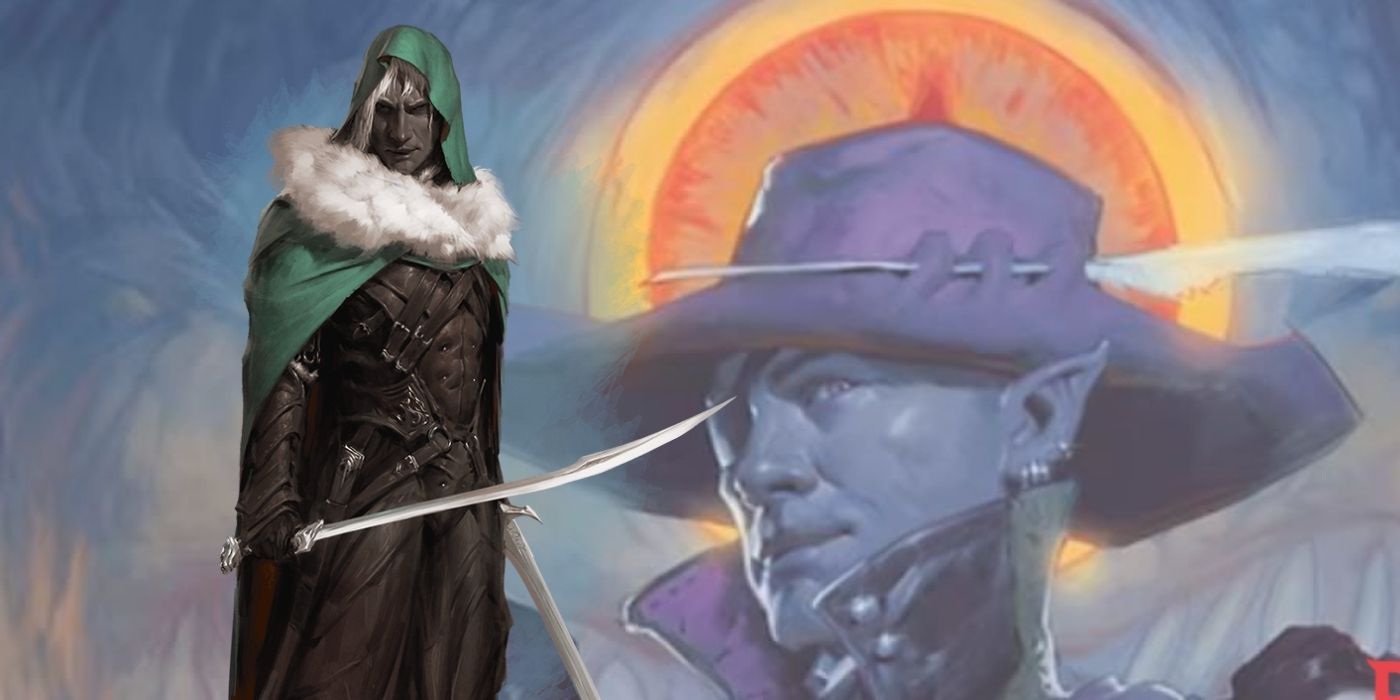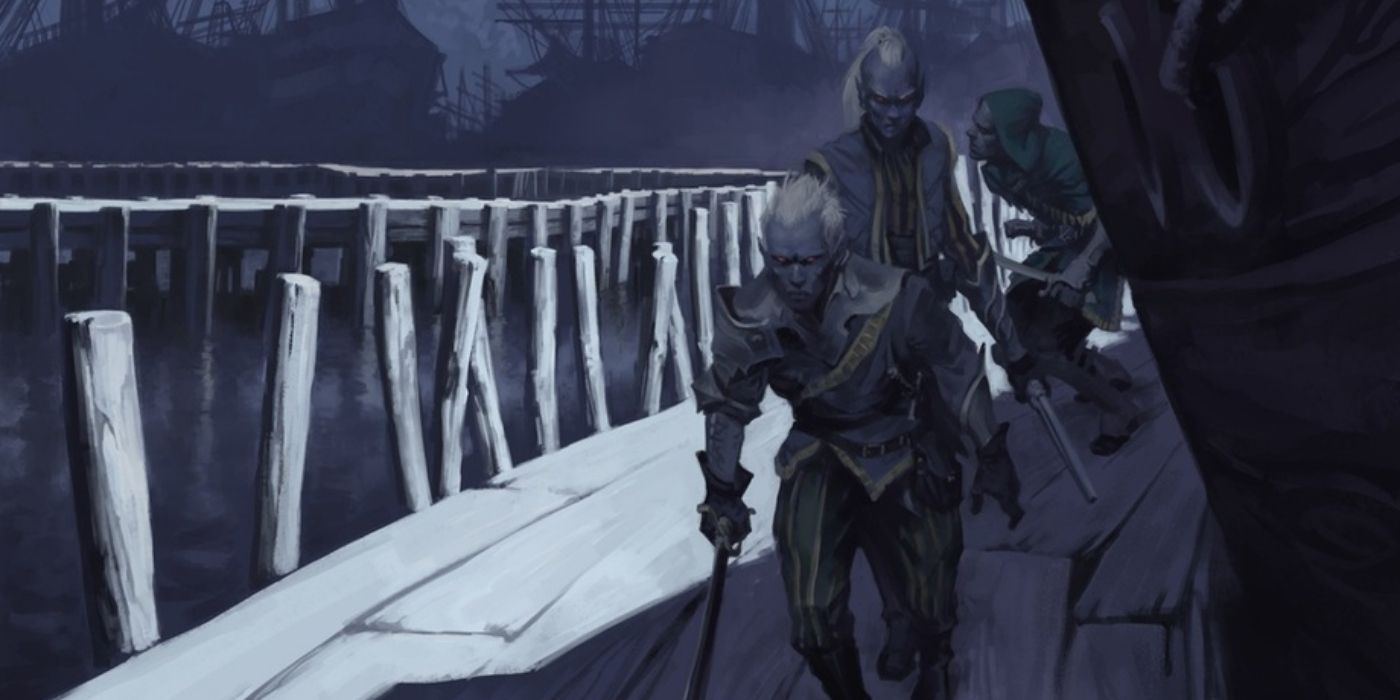
The most recognizable character in Dungeons & Dragons is arguably the Drow Ranger Drizzt Do'Urden. However, his old rival Jarlaxle Baenre is just as interesting. Another wayward Drow and the founder of the infamous Bregan D'aerthe mercenaries, both characters were created by novelist R. A. Salvatore and have since appeared in multiple novels, video games and board games.
Drizzt is an iconic hero who escaped his dark past in the Underdark and made a life for himself on the surface. However, in the campaign book Waterdeep: Dragon Heist, Jarlaxle takes on a surprising role as a defender of marginalized people, as he has transformed the Bregan D'aerthe into a refuge for LGBTQ+ members of drow society.
Drow culture is infamously cruel, and as such, a band of Drow mercenaries reflects this. Their subterranean matriarchal society is known for its backstabbing politics where poison and sorcery frequently are used to destroy rivals, while their entire economy is upheld by slave labor and violent raids. Drow culture also strictly enforces gender roles. Not are the Drow matriarchal, but the inferiority of men is woven into the fabric of their legal system and enforced by their religion. In The Crystal Shard, Drizzt reflects on how this matriarchy is similar to some of the worst patriarchal cultures of the surface world, which was one reason he fled the Underdark.

In many ways, Jarlaxle is a dark reflection of the heroic and honorable Drizzt. He used lies, manipulation and cunning to rise as high as a male Drow could within his culture, but in the end, he also left his home behind. Before departing, he founded the deadly Bregan D'aerthe by appealing to the resentment of many disenfranchised Drow males, in particular those from noble houses that had been destroyed. The group established contacts throughout the Underdark and became skilled information brokers in addition to their other mercenary functions. After leaving the Underdark, Jarlaxle based the group in Luskan, the City of Sails, where he manipulated events to become the city's secret ruler.
In Waterdeep: Dragon Heist, Jarlaxle is trying to leverage himself to become accepted as a legitimate member of the Lords' Alliance. He is one of four possible main villains in the campaign, constantly wearing different magical disguises as he manipulates events. The Bregan D'aerthe accept drow of any gender, and so their struggle to be accepted as a legitimate organization within mainstream Waterdhavian society reflects the struggles of many real-world marginalized communities who have also fought for acceptance only to be treated as outlaws.
Dragon Heist names three drow gunslingers who serve as Jarlaxle's top agents. One of them, Fel'relt Lafen, is a trans man. In addition to being a rare example of trans representation, this undermines bigoted trans-exclusionary talking points about how trans people respond to the real world's patriarchy -- after all, Fel'relt was born into a repressive matriarchal society, but chooses to be true to himself and his real gender despite the risks involved. While Jarlaxle is primarily motivated by self-interests, he has successfully create a safe space for LGBTQ+ individuals.
This reflects an ongoing trend within D&D to be more inclusive. Other Dragon Heist NPCs includes the non-binary Elven Druid Fala Lefalir, as well as the Genasi Embric and Avi, a married same-sex couple who run a blacksmiths shop. LGBTQ+ characters have become commonplace in campaign books. Meanwhile, Tasha's Cauldron of Everything has made new rule supplements to challenge racial essentialism in D&D, and Candlekeep Mysteries has a wheelchair-accessible adventure. These efforts aim to make the game a more welcoming place for all.
0 Comments